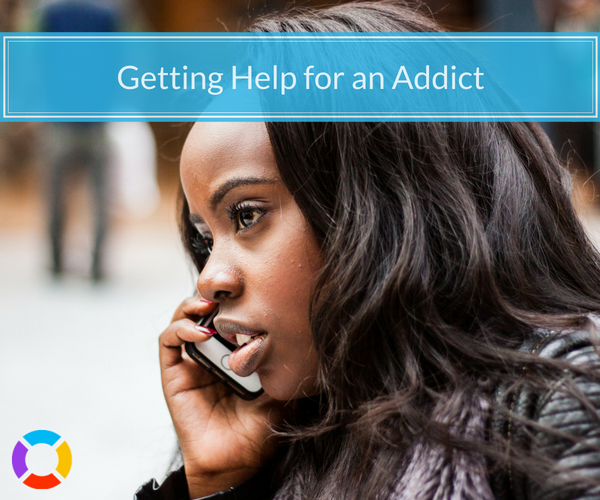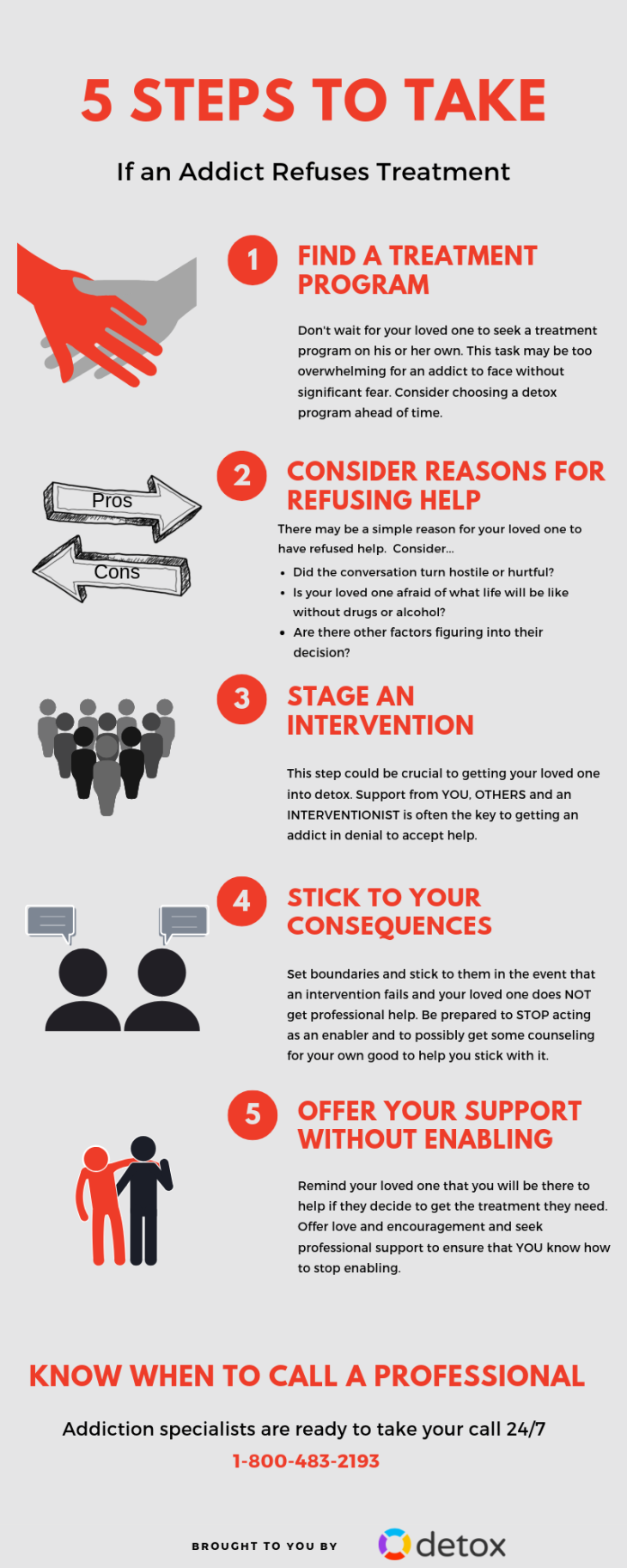5 Steps to Take If Someone Refuses Detox

Have you taken all the steps to ensure your loved one will seek the help they need—and they still said no? It can feel devastating when you work up the courage to ask someone you care about to seek detox treatment and they refuse.
But there’s good news. There are a number of steps you can take after they initially turn you down in order to change their mind. Here is how to help them get appropriate treatment.

Step One: Find a Treatment Program
You may have decided to talk to your loved one about treatment without actually choosing a program first. This can be a mistake, as many individuals who are faced with this situation will promise to seek help and then not follow through.
This kind of problem occurs because people experiencing addiction often lie to avoid the consequences of their addiction. They don’t want to lose you, and yet they don’t want to stop using.
Choosing a detox program ahead of time that will offer all the options they need and accept their insurance plan is a great way to ensure they cannot behave the same way twice. We can help you with this.
Step Two: Consider Why Your Loved One Refused
It is important to look at things from their perspective too. The more you do, the more you can begin to understand what they are feeling and why they said no.
- Did the conversation become contentious, even hostile? Many people get upset when someone brings up their drug abuse in a negative light, but if you weren’t able to stay calm, it’s likely the discussion dissolved into a hurtful argument.
- Your loved one may not want to stop using because they might be afraid of what will happen if they do. They could be scared of detox, especially because there are lots of uninformed horror stories floating around online. For this, it can be helpful to do some research to show them they have nothing to fear.
- One must come to terms with what addiction is and understand the problem in order to help a loved one. For example, people with addictions refuse to seek treatment, even when they know they need it, because drug use has chemically altered the way their brain works. They will always put their addiction first, whether they know it’s right or not.
Once you begin to understand your loved one’s position, you can say more that speaks to the heart of the matter and be better informed about the problem in general.
Step Three: Stage an Intervention
Staging an intervention is an essential part of getting many people into detox. Sometimes, a person needs more than one loved one offering support and asking that they seek help before they will truly admit there is a problem.
- You may want to hire a professional interventionist, especially since your loved one has already refused treatment once. This will likely make them understand the seriousness of the situation.
- Be careful in choosing the individuals you invite to the meeting. Make sure everyone is very close to the person and that they will all stay calm.
- Have everyone who is planning to come to the intervention write down what they will say to avoid saying things they don’t mean.
When you’re ready to stage the intervention, make sure your loved one is sober and that they will not be able to make up an excuse to leave the meeting.
Call Detox.com to find treatment centers today.
Step Four: Stick to Your Consequences
If an intervention fails and your loved one doesn’t seek professional detox and rehab—set boundaries and stick to them, no matter what.
- During the intervention, it is important that everyone decide together what they will do if the individual still refuses treatment. Perhaps you can all agree not to let the individual stay with any of you or that you will no longer give them money. You can have different boundaries based on your relationship with the person, but make sure they are ones you will stick with if they try to test your limits.
- Ensure that your loved one understands the consequences and what will happen if they refuse detox. Then, do not go back on the consequences for any reason—unless the individual gets help.
- It can seem harsh, but it is important to let the person know you will no longer act as an enabler. They need to understand that their addiction has consequences, and you have likely been shielding them for a long time.
Consequences mean different things to different people, but just make sure your loved one knows what you will do if they still refuse to seek treatment.
Step Five: Offer Your Support
It is difficult to both refuse to be an enabler and to offer your loved one support, but it is possible. Remind them you will be there to help them, should they decide to get the treatment they need. If they do finally make the decision to seek detox in a professional setting, stay in contact with them and let them know that they have your love and encouragement.
After all, those who have the support of a spouse, family member, or close friend during treatment are more likely to stay in the program longer than those who do not. And longer stays are related to better recovery outcomes.

